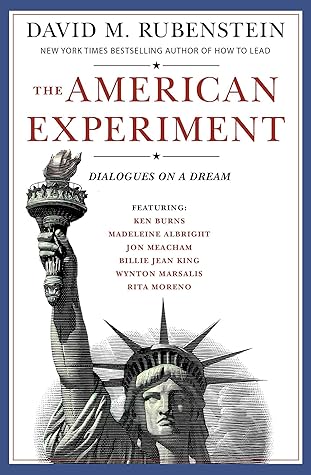More on this book
Kindle Notes & Highlights
Read between
April 25 - May 18, 2022
“When you are asked to serve, there is a moral compulsion to serve your country. To be a federal judge is service as a lawyer, the most service that you can do for your country.”
Sandra believed, having watched the decline of civic discourse in our country, that was directly tied to the time in which civic education had declined in the U.S. She became committed to starting an organization called iCivics.org, which uses game-playing to teach kids about civics in a creative and innovative way.
I tell students all the time, “It is your obligation to learn about your system of government. But more importantly, it’s your obligation not to be a bystander in life, but to become an active participant in understanding how you can better your community.”
That is what civic participation is about. You do not have to be a politician and you do not have to be involved in politics, but you do have to be involved in improving the world you are in.
The lack of resources that we put into civic education is a significant problem. We put fifty dollars per student per year into STEM classes. We put five cents per student into civic education. That disparity is way off, given how important civic education is to making better students. There is a tremendous amount of social science research that shows that students who become involved in civic education and civic participation overall become better students.
Out of a hundred potential questions, you’re asked, I think, ten of them. And you have to get six correct. Amazingly, 91 percent of the people who take it pass. But when the same test was given to native-born Americans not long ago, as you know, in forty-nine out of fifty states and the District of Columbia, the majority failed. So it’s a sad situation.
But one of my colleagues, Justice Stephen Breyer, has written a book about making a democracy, in which he argues that our decision-making is there to ensure that people continue to respect the judiciary. Opinion-writing is our way of explaining to the public why the law requires what it does. That is educational, but it also serves another function—ensuring the legitimacy of the courts, that we are not a monarchy, we are not making up rules, we are following the law as we the justices best understand it.
There is a misunderstanding about the role of lawyers in the judicial system. You are not favoring one side or another when you become a prosecutor or a defense attorney. Both prosecutors and defense attorneys are serving justice. We are each doing our job. The prosecutor represents the people of the state. The defense attorney represents the defendant. Each of us is ensuring that our legal system is properly working. We are really partners in a common pursuit, and too often people see us as enemies. That is an attitude that should be changed.
many lectures in which I have talked about judicial ethics. In our country, we take for granted that we have the lowest amount of judicial corruption in the world. We don’t pay our judges enough. We pay our federal judges very little. We pay most of our state judges even less. Now, one could always point to a few corruption cases that have been prosecuted, but by and large, we are, in the world, the most respected judicial system. That is because, as a nation, we have insisted on that level of commitment to the rule of law.
Passion. That is the first quality. To become a leader, you have to show people that you care deeply about things. People only follow those they think are passionate. So you have to possess passion and, second, commitment driven by dedication and hard work. You do not get anywhere unless you work hard.
I tell kids all the time, “Think of every sports athlete that you admire. They did not wake up a star. They had to work at it. Every basketball star you know has been on the court for hours, days, months, and years, practicing that throw shot.” You have to work hard to achieve anything in this life. You have to have perseverance and dedication and a sense of commitment to working hard, to doing things right.
But not until new legislation was enacted in 1990 was the process of judicial admission ended; federal naturalization examiners would now review whether the applicants met the various standards, and judges would be limited to administering the oath of allegiance to the United States.


